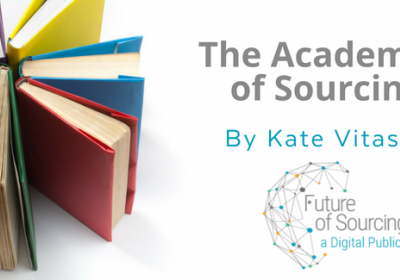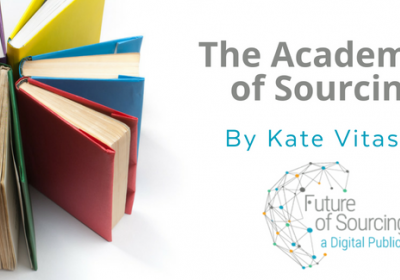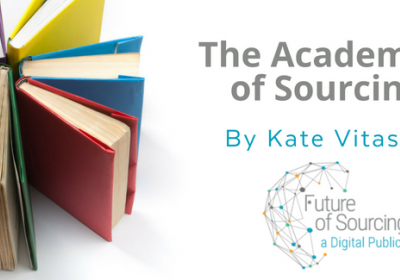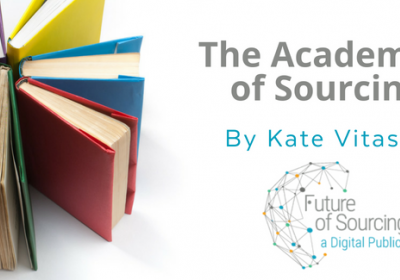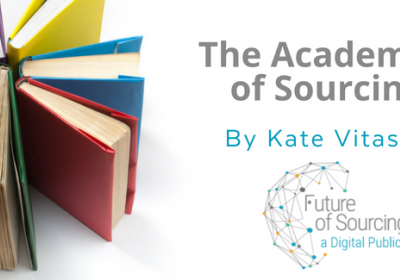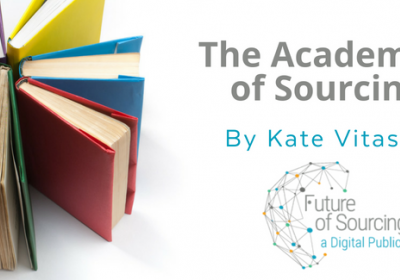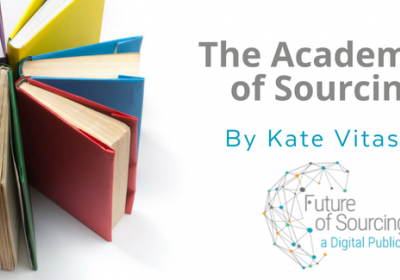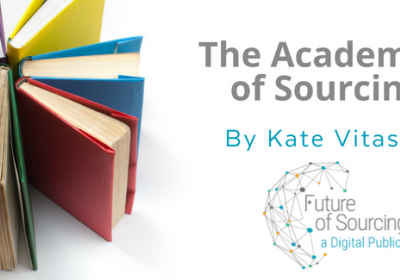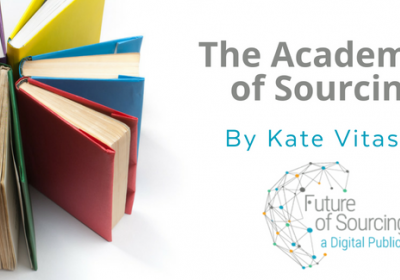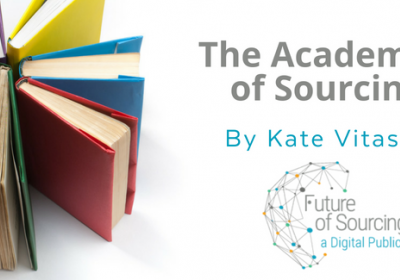Kate Vitasek
Kate Vitasek is an international authority for her award-winning research and Vested business model for highly collaborative relationships. She is the author of six books on the Vested model and a faculty member at the University of Tennessee. She has been lauded by World Trade Magazine as one of the “Fabulous 50+1” most influential people impacting global commerce.
From this author
By design this column has, for the most part, examined the theories and research of academic and economic luminaries that have helped form the basis of modern outsourcing and my own research and development efforts in the realm of collaborative outsourcing.
This month I’d like to take a brief break and share a real-world achievement that employed Vested Outsourcing principles, while also sending out some kudos to a friend and colleague who was instrumental in instilling those...
The (r)evolution in the outsourcing industry is happening. Innovative win-win outsourcing relationships are replacing traditional cost-focused procurement methods. The University of Tennessee calls these innovative approaches “Vested Outsourcing,” because the company and the service provider work together to align the success of the service provider with the achievement of success for the client’s business. Each party employs its core competencies to accomplish what...
I hope you have enjoyed the last columns focusing on the “economics of outsourcing.” I promised to explore other scholars and how we can learn from their leading work. For the next several columns I’ll be featuring the most influential “Big Thinker” psychologists that have directly or indirectly influenced the development of modern outsourcing.
I have long been a proponent of building governance structures that help both parties behave in a long-...
My last two columns on Umair Haque and Joseph Stiglitz have shifted the focus a bit to the adaptations that global businesses face as more and more challenges to the traditional ideas surrounding capitalism and globalisation emerge.
This time I’ll take look back to a giant economist and political scientist, Joseph Schumpeter, who worried about the stagnation of capitalism and globalisation long before there was even a term called globalisation. Schumpeter, an Austrian-Hungarian...
For the most part this series has examined the big thinkers in economics who have influenced the development of modern outsourcing. This week I want to focus on Joseph E. Stiglitz, whose work has the power to influence how companies think about globalisation.
Joseph E. Stiglitz, a professor at Columbia University, received the 2001 Nobel Prize (with George A. Akerlof and A. Michael Spence) for his analysis into how markets work with asymmetrical information. Since then, Stiglitz has...
Do you suspect that there’s something wrong or at least severely amiss with modern capitalism, and by extension the way we outsource, think about value, construct our supply chains and do business? Can’t quite put it into words and context? Umair Haque has many thought-provoking insights for you on the subject.
Haque is Director of the Havas Media Lab and author of The New Capitalist Manifesto: Building a Disruptively Better Business. He also writes a...
If you walk past a bookstore or watch 60 Minutes you have likely heard of the wonderful works by the academic economist Steven D. Levitt, Freakonomics and Superfreakonomics. Levitt teamed with his...
A major focus of this series is on how academics and economists have transformed modern thinking about the nature of the business and outsourcing contract, from its relationship to the firm and how it is used and governed to its relationship on pricing and total cost.
One of the most major of these thinkers is the late contract and legal scholar Ian R. Macneil, who turned conventional views about...
It’s long past time for a change in the way outsourcing contracts are negotiated and managed. In 1968 the legal scholar Ian R. Macneil observed that most contracts are ill-equipped to address the reality of business needs. In Contracts: Instruments for Social Cooperation, Macneil wrote, “Somewhere along the line of increasing duration and complexity [the contract] escapes the traditional legal model.” He argued that contracts are rooted in the classical...



